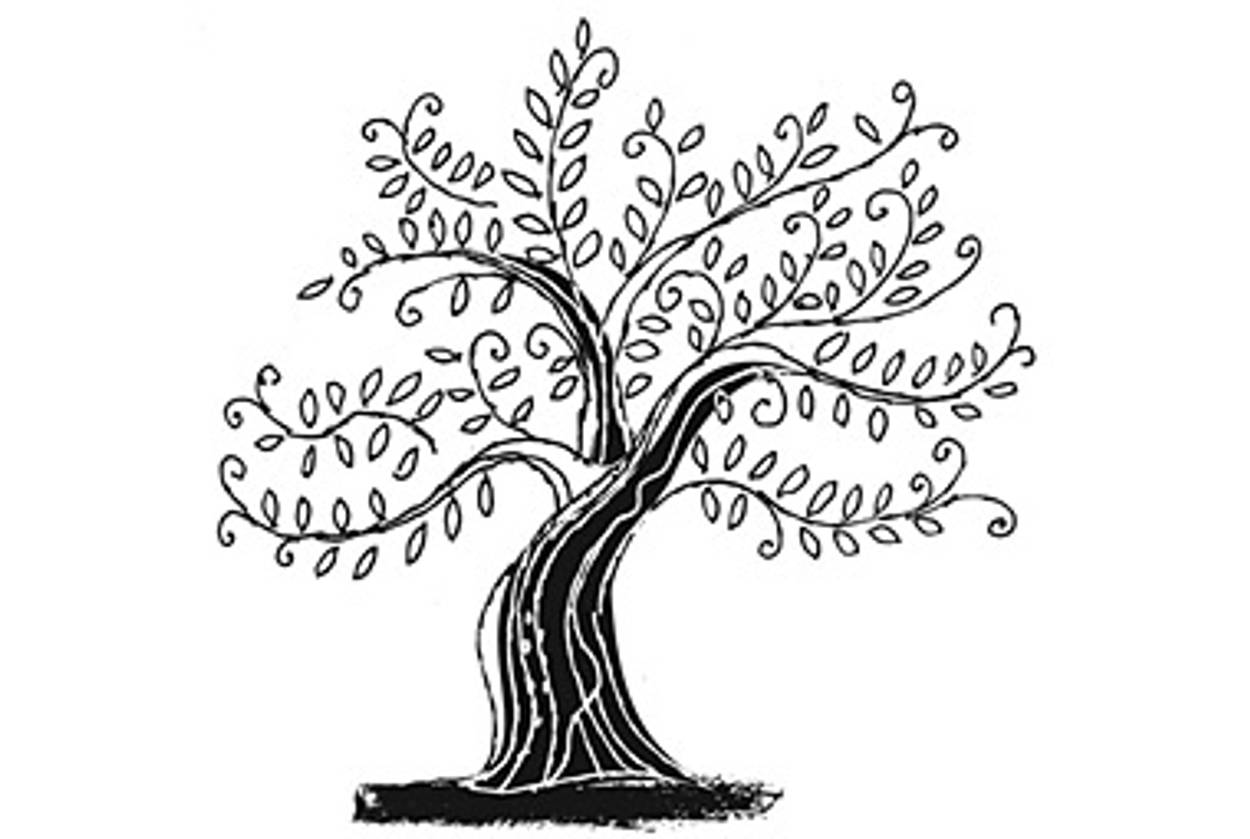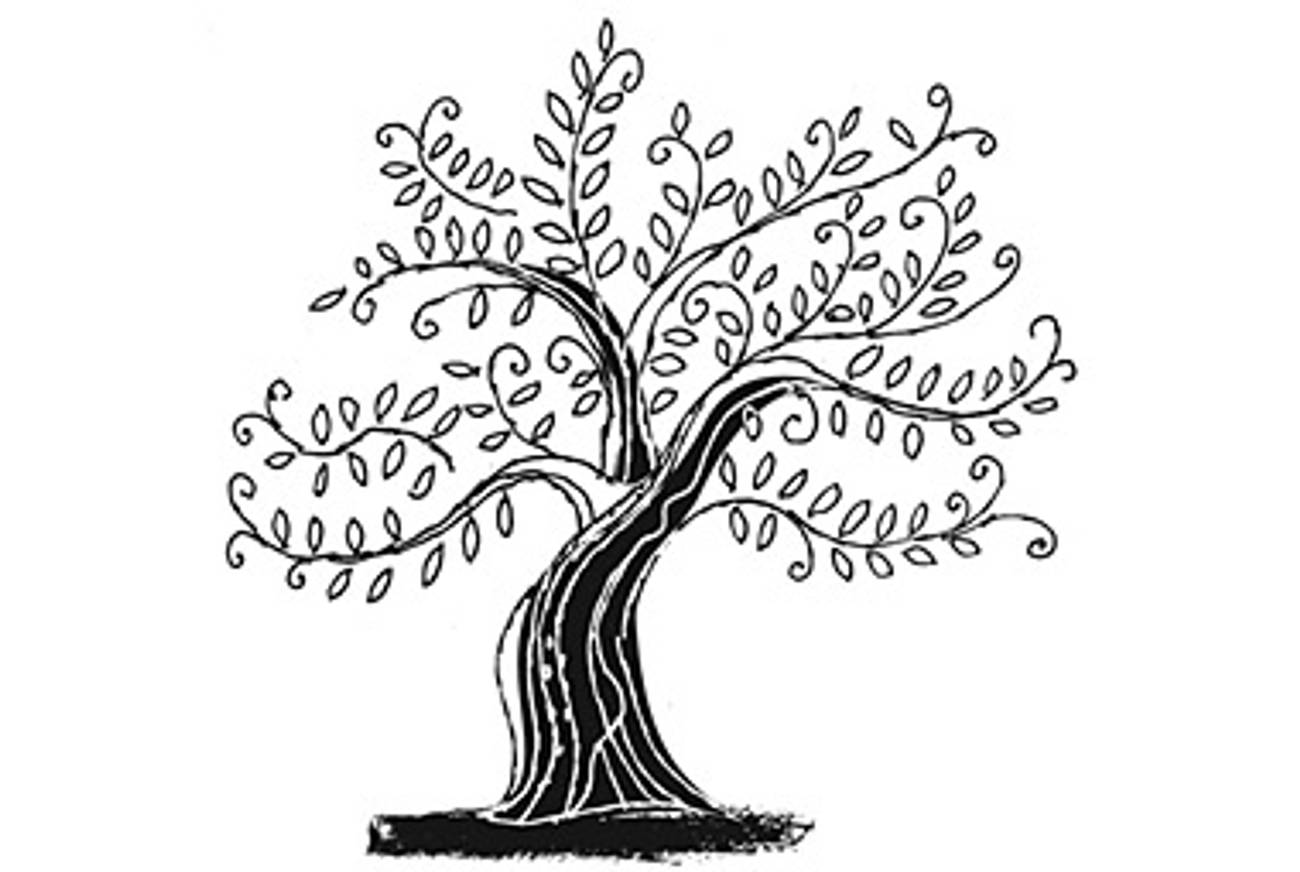The Frozen Rabbi: Week 7, Part 1
Over the TV’s din, Eliezer describes the kabbalah’s Tree of Life




He bade the boy to sit on the carpet between him and the TV, whose volume he turned down but not off, and admonished him, “Everybody that don’t stop searching after things too hard for him, or seeks things that from him should be hid, it’s better he should never be born.” That said, he told Bernie that the criteria for studying the mystical texts were three: one must have at least forty years, a wife and family, and a paunch as a hedge against involuntary levitation. “To my knowledge only the belly you got.” And it had begun lately to shrink. Then Eliezer told the cautionary tale of the four rabbis who entered paradise: how one dropped dead, one went meshuggah, the third forswore his faith, and only the sage Rabbi Akibah escaped in one piece—“and you, sweetheart, are no Akibah.” But as the boy remained rapt, showing not the least inclination to heed his warnings, the rabbi emitted a sigh, then proceeded to explain the notion of the Etz Chayim, the Tree of Life—each of whose branches, called sefirot, corresponded to the rungs of Jacob’s Ladder, which corresponded in turn to their respective astral realms.
“The rungs for all I know are shoyn farfoylt. Nu? they’re rotten already. The nimble can still ascend, but they break from under your weight every rung, which it means you can’t come back again down. . . .”
Eliezer’s nasal voice, despite the jumbled syntax and foreign phrases, was melodious to Bernie, who hung on every syllable, oblivious to the TV dialogue that filtered through. In this way, over a number of days he lost count of, the boy was initiated into certain mysteries. He was introduced to the kabbalistic concepts of kavanah and devekut, intensity and cleaving, techniques that enabled you to swing with a simian grace from limb to limb of the Tree of Life. He was told of the tzimtzum, God’s retreat from His own universe, like a landlord who, disgusted with the tenants who had trashed his premises, rather than evict them, exits slamming the door. The noise of his withdrawal is the big bang, the shevirah, behind which the whole house of cards collapsed, the dust from the rubble rising to heaven where it caused the Lord to sneeze. The shower of sparks that ensued from his divine sternutation lodged in crannies throughout the detritus, and it is our lot, saying endless gezundheits for the gift of God’s luminous snot, to retrieve those sparks from their hidden places. Then fanning them into flames, we make sufficient light by which to begin restoring the fallen world to its former splendor.
“Such is on Earth our task,” said Eliezer, with more than a hint of boredom.
Of course, this world was only one of several alternative worlds, not the least of which was the Yenne Velt, the Other Side, populated by creatures at once more feral and more complex than ourselves. It was a realm that intersected our own, its denizens sometimes invading our very beings in the form of dybbuks, malign spirits that take up residence in the organs and apertures of the living, or ibburs, which inhabited the recently deceased in order to complete the mitzvot they’d left unfinished on earth. There were dizzying categories of demons, including jester demons that played tricks on the soul during its posthumous journey toward Kingdom Come: They turned the laws of reincarnation, the gilgul, helter-skelter, giving false directions to souls already bewildered by the mapless thoroughfares of the afterlife.
“It’s from below that the yetser horeh, the yearning,” revealed Eliezer, suppressing a yawn, “brings about the completion above.”
Listening, the boy understood that all his reading to date had been mere amateur dabbling.
Check back tomorrow for the next installment of The Frozen Rabbi. Or, to get each day’s installment of The Frozen Rabbi in your inbox, sign up for the Tablet Magazine Daily Digest, and tell your friends.
Steve Stern, winner of the National Jewish Book award, teaches at Skidmore College in upstate New York.
Steve Stern, winner of the National Jewish Book award, teaches at Skidmore College in upstate New York.